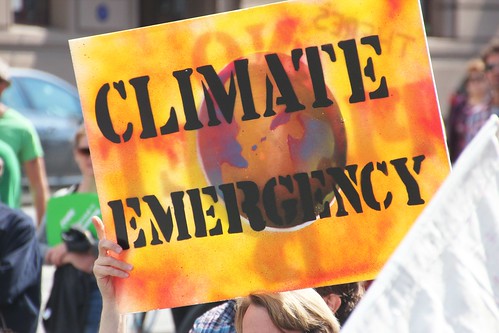Reprinted from Globe and Mail
It has been one year and one week since a coalition of dozens of organizations and artists launched The Leap Manifesto, a short vision statement about how to transition to a post-carbon economy while battling social and economic injustice.
A lot has changed: a new federal government, a new international reputation, a new tone around First Nations and the environment. But when it comes to concrete action on lowering emissions and respecting land rights, much remains the same.
Our new government has adopted the utterly inadequate targets of the last government. Alberta has a climate plan that would allow tar sands emissions to increase by 43 percent, wholly incompatible with the goals of the Paris climate agreement.
And the push for new pipelines -- often sold as "nation building" -- continues to tear us apart.
What I find striking is the narrowness of our public discourse -- how much continues to be treated as unsayable and undoable when it comes to keeping carbon in the ground. Other countries are moving ahead with policies that begin to reflect the scientific realities. Germany and France have both banned fracking.
Even in the United States, there is a wider spectrum of debate. The new platform of the Democratic Party, for instance, states that no new infrastructure projects should be built if they substantively contribute to climate change -- essentially the same position that caused all the outrage around The Leap Manifesto.
So what's going on here? Why is it so hard for Canadian political leaders, across the political spectrum, to design climate policies that are guided by climate science?
There are many factors, of course -- the need for jobs in an economic downturn, the power of the fossil-fuel lobby, to name a couple. But we are hardly the only country contending with these forces.
I think there is something deeper at play, something that brings us back to the founding narratives of this nation. The story begins with the arrival of European explorers, at a time when their home nations had slammed into hard ecological limits -- great forests gone, big game hunted to extinction.



